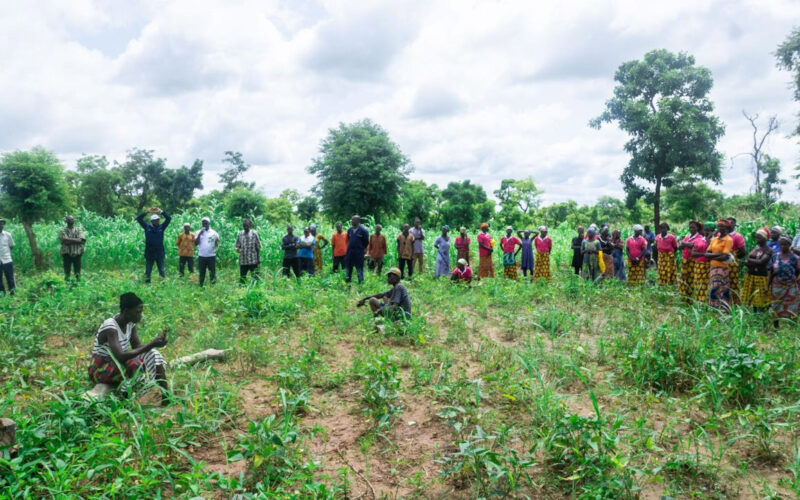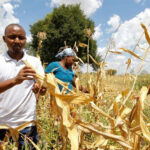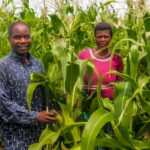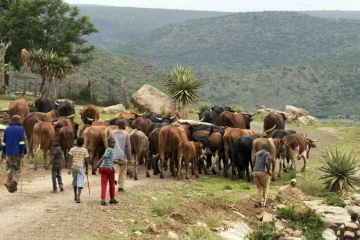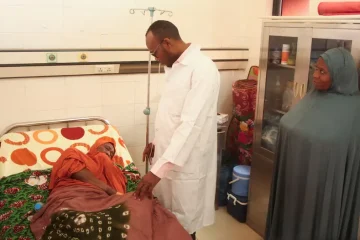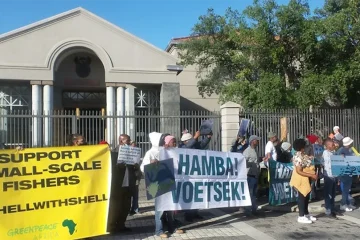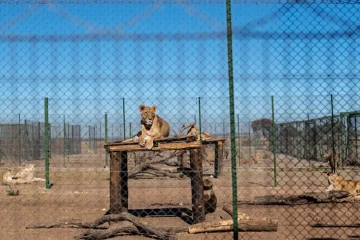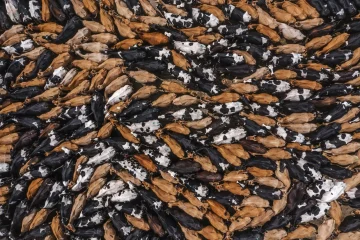In northern Ghana, many smallholder farmers who grow crops on less than one hectare of land each are entering into contract farming. This gives them guaranteed buyers for their crops. Human geographer and climate change adaptation expert Frederick Dapilah has found that contract farming offers many lessons about building resilience in the face of climate change.

What is contract farming?
Contract farming is when farmers grow crops to meet contracts they have signed with buyers. They agree on a fixed price upfront. As a result, the farmers do not have to search for buyers after the harvest or negotiate a price for their crops.
The contracts come with loans or donor funding, access to scarce agricultural inputs, advice about how to farm better in a changing climate and access to new technology.
To find out whether contracts enabled smallholder farmers to cope better with climate change, I surveyed 140 smallholder farmers in Ghana who had signed contracts with private businesses, agricultural firms and a major German development agency to buy their produce. I also interviewed a further 32 smallholder farmers, agricultural company fieldworkers, farmers’ collective leaders and funders about contract farming.
What does climate change look like in northern Ghana?
Villages within the fragile Guinea Savannah ecological zone in Ghana’s Upper West region have started to experience more extreme heat, drought, windstorms and flash floods. These can wreak havoc on agriculture. The smallholder farmers rely on rain to water their crops and generally don’t have irrigation systems. If it doesn’t rain, the crops fail.
In this region, it is predicted that rising temperatures from the changing climate will increase the numbers of pests that will destroy crops. The yield of the staple crop, cassava, will drop by almost one third by 2080. Floods and drought will become more common. So, farmers are trying to adapt now.
How did contract farming benefit smallholder farmers?
The farmers had already been affected by climate change. They now experienced shorter and less predictable rainy seasons, droughts and floods. Rising temperatures had damaged soil nutrients and floods had washed away topsoil, leading to soil infertility and smaller harvests. They were motivated to get involved in contract farming because they would receive climate change advice, and be able to borrow money or receive funding to improve their farming.
The farmers provided me with information about how contract farming had helped them cope with climate change. At the farms, the farmers showed me the different crops they were growing, and the new technology they were using.
I found that contract farming benefited the smallholder farmers in that it enabled them to buy fertiliser and fast-growing crops that were more resistant to drought than the crops they had previously grown. They could hire tractors and harvesters to plant and harvest quicker to suit the shorter rainy season. About 57% of the farmers had access to climate advice, compared to about 4% of non-contract farmers. Daily information about droughts and heavy rainfall enabled them to make better decisions about when to sow crops and apply fertiliser. They also saved money because they no longer had to pay to transport their crops to markets – the buyers transported their crops.
So does contract farming build resilience to climate change?
Other research has found that contract farming is critical in building Ghanaian farmers’ resilience to extreme climate events such as drought. In India, Madagascar and China contract farmers were found to have more food security and were able to sell their crops for higher prices.
But my research found that although contract farming enhanced smallholder farmers’ resilience in Ghana, it was not a full solution. My research found that these farmers were still vulnerable to climate extremes such as rising temperatures, drought and floods. The farmers said that in times of extreme drought or floods, nothing could be done to save their crops. This pushed them into debt because even though their crops had failed, they still had to pay back the money they had borrowed from the buyer to buy seeds and rent equipment.
The results of the contract farming also differed depending on the type of contract the farmer entered into. For example, in agribusiness contracts (between farmers and agriculture firms), the farmers received diverse resilience-building resources. These included fertilisers, access to tractors, improved crop varieties and support from agricultural extension officers (expert advisors). However, 30% of farmers involved in these contracts said they had lost crops in extreme climate events and were in debt with the buyers as a result.
In farmer-donor contracts (between a funder and a group of smallholder farmers), the farmers also received useful resources. Because the risk of crop failure was shared between the group, more women (who prefer less risk) participated in the scheme than men. Even so, 10% of these farmers still became indebted to buyers after their crops failed because of extreme weather.
Farmers who entered into private-person contracts (between an individual smallholder farmer and a private individual) only received loans and had to deliver a fixed amount of produce. However, no participating farmer in a private-person scheme incurred financial debt, even if extreme climate events damaged their crops. As one farmer explained:
… the contractor knows the location of his farm and the number of yam mounds I have cultivated for him. So, if the rains do not come and the yam does not yield well, it is not my fault. He cannot hold me responsible for the poor yields.
My research found that there are benefits to contract farming. However, funders and policymakers should also consider providing climate insurance to mitigate production losses due to climate change.
- This article is republished from The Conversation under a Creative Commons license. Read the original article.

